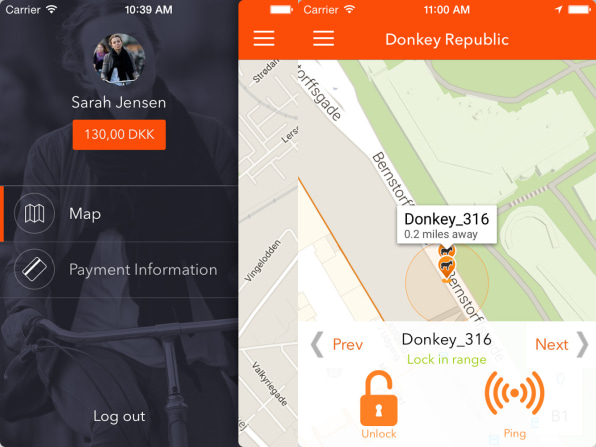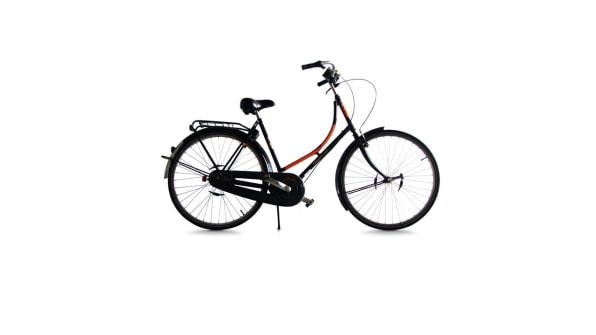Do You Make Better Money Being A Uber Driver Vs A Taxi Driver
Like cars, bikes usually sit around for most of the day. But they haven't been easy to make part of the sharing economy. The money someone can make from renting out a bicycle–compared to, say, a spare room on Airbnb–may not seem worth the trouble it takes.
But a new startup wants to change that, making it easy to rent out a spare ride or, for entrepreneurs, create an entire business around a fleet of bikes. The Copenhagen-based startup, called AirDonkey, uses a bluetooth-enabled lock that keeps track of where the bike is located. An app remotely unlocks the bike for anyone who wants to use it.
With several dozen bikes, the founders calculate that someone could earn enough money from AirDonkey to make it a full-time job. "We looked at what an AirDonkey entrepreneur could make per week, compared to an Uber driver," says Erdem Ovacik, co-founder of the startup. "We're trying to be more attractive."

A full-time Uber driver in the city might make $900 in a week after expenses like gas. An AirDonkey micro-entrepreneur could make $1,200 with a fleet of 70 bikes, the company claims (assuming many people sign up and actually use the app). And managing a fleet of bikes is more flexible than driving a car.
"The big opportunity here is you can work anytime," Ovacik says. "With Uber you have to drive in rush hour to make a buck. Here, you service the bikes that are broken in the off hours. You don't have to worry about anything else."
It's also designed to be easy enough to use that it's worth it for anyone who has an extra bike, or anyone who only needs a bike for a short time. Ovacik contrasts it with Spinlister, a bike-sharing app that has gone through a few struggles.
"For lower-value assets, it doesn't make sense to take your time to rent it out," he says. "Spinlister's really valuable if you want special equipment, or if you need a bike for a month. The person who rents out the bike needs to have enough economic incentive to go through all the hassle. What we want is something simple, and so low-cost it's affordable for everyone to take it out for a day, or even half a day."

Because the bike can be unlocked remotely–and left anywhere–the owner and renter won't have to meet in person. If the owner needs to ride it themselves, they can easily make the bike unavailable.
For tourists, the service is designed to be easier to use than either a bike rental shop or a city bike share system. If someone wants a kid's bike, or a cargo bike, or anything that isn't a standard size, they'll be able to find it in the system. They won't have to worry about returning to a shop during specific hours, or dropping the bike off at a specific bike rack, as with a bike share program.
The bike can be left anywhere in a certain zone. For an extra fee, someone can leave it farther away; the company is talking to Uber drivers about delivering the bikes back to their owners. (This works in Copenhagen, at least, where Uber cars always have bike racks.)
As they designed their app, AirDonkey noticed how difficult it was to use a service like Copenhagen's city bike share program, which takes several minutes of signing up before you can ride off. They took more inspiration from Uber. "It should be, like, three steps," Ovacik says. "Put in your credit card, out you go. You don't want people to wait around. Uber has done that fantastically."
The service will launch first in northern Europe, in part because bike theft is less common there; in a place like the U.S., bikes have to be locked up more securely, making the electronic locking system more of a challenge. But the company is also developing a new lock that will come with a built-in chain–and plans to soon take the company global.
AirDonkey will launch on Kickstarter in mid-October.
Do You Make Better Money Being A Uber Driver Vs A Taxi Driver
Source: https://www.fastcompany.com/3050948/could-uber-drivers-make-more-money-renting-bikes
Posted by: patersonfrok1965.blogspot.com

0 Response to "Do You Make Better Money Being A Uber Driver Vs A Taxi Driver"
Post a Comment